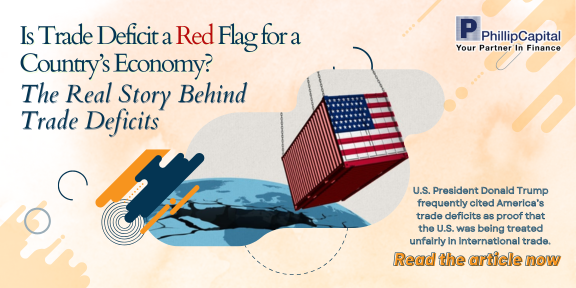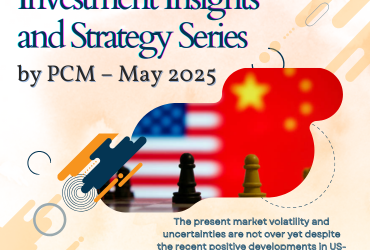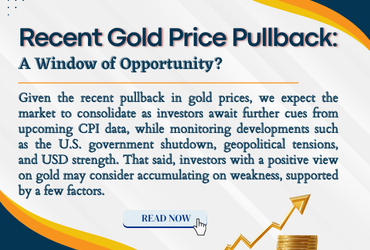
The term “trade deficit” has recently become a flashpoint in global politics and economics. U.S. President Donald Trump frequently cited America’s trade deficits—particularly with major trading partners like China, Canada, and Mexico—as proof that the U.S. was being treated unfairly in international trade. In response, his administration announced reciprocal tariffs on more than 90 countries around the world with varies tariff rate on 2nd April, aiming to narrow the trade gap and repatriate manufacturing jobs to the U.S. The reciprocal tariffs were later rolled back following a three-month pause, with the exception of those imposed on China, which remained in place.
What Is a Trade Deficit?
A trade deficit occurs when a country imports more goods and services than it exports. It’s part of a country’s balance of trade — a key component of the current account in the balance of payments. Malaysia is typically a trade surplus nation, driven largely by strong exports in commodities such as palm oil and petroleum, as well as manufactured goods, particularly electronics, electrical products, and semiconductors. As illustrated in Exhibit 1, Malaysia has consistently recorded a monthly trade surplus over the past decade, with the only exception in April 2020, when global trade disruptions from the COVID-19 lockdown briefly tipped the balance.
Exhibit 1. Malaysia’s trade balance (2015-2025)

Source: Department of Statistic Malaysia (DOSM), as of Feb 2025
A Trade Deficit Isn’t Always a Bad Sign
It’s a common misconception that a trade deficit signals a struggling economy. In fact, it can reflect robust domestic consumption and investment, especially when driven by demand for imported goods, machinery, or raw materials. This is often a byproduct of economic expansion. For example, Malaysia’s growing imports of electronics, vehicles, and appliances may indicate rising income levels and business activity. Moreover, many imports are capital or intermediate goods essential for domestic production—such as semiconductor equipment that powers Malaysia’s thriving E&E export sector. These “productive deficits” help build long-term export capacity. A well-managed deficit can also be supported by foreign investment, as seen in Malaysia’s ability to attract FDI from major tech players like AWS and Microsoft, signaling investor confidence despite trade imbalances.
When a Trade Deficit Becomes a Concern
That said, trade deficits aren’t always harmless. Risks arise when deficits are persistent, poorly managed, or tied to weak industrial competitiveness. Over-reliance on foreign goods can stall domestic industry growth and compromise strategic self-sufficiency, such as in food or tech. Additionally, running a deficit may put pressure on the local currency—like the ringgit—especially during global shocks or falling export revenues. This can lead to imported inflation and hurt households and businesses. Most concerning is when deficits are fueled by debt-driven consumption rather than productive investment, potentially creating unsustainable imbalances and greater vulnerability to external shocks.
What Should Investors Take Away?
Trade deficits, like many economic indicators, are not black-and-white. They must be viewed in context—what’s driving them, how they’re financed, and how they fit into the country’s broader economic strategy.
Understanding the trade balance can help investors anticipate movements in:
- Currency value
- Inflation and interest rate outlooks
- Sector-specific growth (e.g., tech manufacturing, consumer staples)
At PhillipCapital Malaysia, we prefer companies with strong earnings visibility, particularly those that are more insulated from trade wars (e.g., domestic-focused sectors) or could even benefit from supply chain relocations due to the trade tension. We believe market focus will remain on fundamental strength and value investing, viewing any market weakness as an opportunity.
Phillip Capital Malaysia and our offerings
We reaffirm our belief that there are still opportunities in the market, and we maintain a discerning approach in choosing high-quality stocks for our portfolio. However, it is crucial to exercise caution and carefully select investment options to ensure the best risk-adjusted returns. By taking a vigilant and discerning approach, investors can potentially reap the benefits of the current market opportunities while minimising risks.
A noteworthy avenue for investors seeking diversification in their portfolio is through PhillipCapital Malaysia. PhillipCapital Malaysia offers multiple private mandate services managed by professional fund managers. By leveraging PhillipCapital Malaysia’s private mandate services, investors can enhance their resiliency, optimise portfolio performance, and navigate the complexities of the market with confidence.
We also offer both conventional and Shariah-compliant options to cater to the needs of all investors. For Malaysia’s mandates, we like:
- PMART/PMA Dividend Enhanced and/or PMART/PMA Dividend Enhanced ESG
Our PMART Dividend Enhanced and PMA Dividend Enhanced is an income-driven portfolio focused on high dividend-yielding equities. We apply the Dog of the Dow approach, screen and select top market cap stocks to minimise risk and ensure consistent performance. The portfolio is an equal weighting portfolio which reduces concentration risk and provides similar exposure to all clients, both initially and after rebalancing. We offer both conventional and Shariah investment options to cater to the diverse needs of our investors. Click here to learn more. We recently also introduced PMART/PMA Dividend Enhanced ESG Mandate as we remain dedicated to investing in ESG stocks given their stronger valuation and profitability.
- PMART/PMA ESG
Phillip Capital Malaysia offers discretionary portfolio that invests in stocks with high ESG ratings from the F4GBM and F4GBMS Indices, namely PMART and PMA ESG. There are both conventional and Shariah options available. To explore the companies in which both Conventional and Shariah ESG mandates invest, you can refer to the provided link.
- PMART/PMA Blue Chip and Opportunity
Our Blue-Chip portfolios primarily allocate our investments towards companies with large market capitalisations, while the Opportunity portfolios predominantly invest in companies with smaller market capitalisations. We also offer both conventional and Shariah-compliant options to cater to the needs of all investors.
Please click on the link to learn more or email us at cse.my@phillipcapital.com.my if you require any further information.
Disclaimer:
The information contained herein does not constitute an offer, invitation or solicitation to invest in Phillip Capital Management Sdn Bhd (“PCM”). This article has been reviewed and endorsed by the Executive Director (ED) of PCM. This article has not been reviewed by The Securities Commission Malaysia (SC). No part of this document may be circulated or reproduced without prior permission of PCM. This is not a collective investment scheme / unit trust fund. Any investment product or service offered by PCM is not obligations of, deposits in or guaranteed by PCM. Past performance is not necessarily indicative of future returns. Investments are subject to investment risks, including the possible loss of the principal amount invested. Investors should note that the value of the investment may rise as well as decline. If investors are in any doubt about any feature or nature of the investment, they should consult PCM to obtain further information including on the fees and charges involved before investing or seek other professional advice for their specific investment needs or financial situations. Whilst we have taken all reasonable care to ensure that the information contained in this publication is accurate, it does not guarantee the accuracy or completeness of this publication. Any information, opinion and views contained herein are subject to change without notice. We have not given any consideration to and have not made any investigation on your investment objectives, financial situation or your particular needs. Accordingly, no warranty whatsoever is given and no liability whatsoever is accepted for any loss arising whether directly or indirectly as a result of any persons acting on such information and advice.






